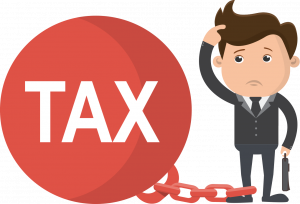It’s no secret that planning for retirement has become more complicated than it once was. Retiring in a foreign country, however, can offer even more challenges. And if you’re an American planning to retire in Japan, you might be surprised by the number of considerations you’ll have to keep in mind. Perhaps you want to retire in Japan as a new adventure after working life. Or maybe you’re already a long-term resident. Either way, there are several things you’ll want to know to plan for your life as an American retiree in Japan.
Americans Living (And Retiring) In Japan Have To File Taxes In Both Countries
If you’ve already been living and working in Japan, you probably know this already. The United States
While some people with a lower income may be able to fly under the radar as far as U.S. taxes go, any accounts for individuals worth over US $50,000 are subject to this law.
Japan follows the same policy, depending on the individual’s status of residency (long-term residents are taxed on worldwide income, and non-permanent residents may be taxed on other non-Japanese income sources).
Thanks to these worldwide taxation policies, Americans living in Japan can suffer from double taxation on their income if they don’t know how to file properly. Fortunately, there are ways for Americans to minimize the impact of double taxation. Policies such as Foreign Earned Income Exclusion (FEIE) and Foreign Tax Credit (FTC) can help Americans in Japan maximize their income and assets.
Many of Your Assets Are Taxable in Both the U.S. and Japan- Including Retirement Accounts

- -Japanese Private Retirement Accounts (NISA and iDeco): NISA and iDeco are private retirement accounts that were established in Japan as an alternative to the strained pension system. They each have their distinctive features, but both operate similarly to American IRA or 401k accounts, allowing contributors tax incentives to invest in stocks, bonds, and funds. Unfortunately, unless these assets are specifically protected through complex legal structures, they are highly taxable by the U.S. government, making them a poor retirement planning tool for American retirees in Japan.


- -American/Overseas Inheritances and Gifts: Japan is known for having high inheritance and gift tax rates. What’s more, these tax rates apply even to foreign residents of Japan, provided they have been in the country for a certain length of time. This means that if you are expecting to receive an inheritance from American relatives, or if you are still accruing assets in the United States that you intend to give to your Japanese children or children residing in Japan, you may have to take extra measures to protect the value of these assets from taxation on both sides.
- -Real Estate in Japan: If you own your home in Japan and you’re thinking of selling, you may want to think twice. Income gained by an American upon selling his or her home in Japan is taxable by the U.S. government. There are, however, personal residence exemptions that may allow you to minimize the taxable profit from your home sale.
Can You Still Get Your American Pension and Social Security in Japan? If you have been paying into an American retirement account, you can still receive the benefits in Japan. Similarly, if you have accrued enough social security points to qualify for American social security payments, you can collect these payments from Japan, as well. However, all of these income sources may be taxable in both countries.
How Should Americans And Other US Taxpayers Plan Their Retirement in Japan?
American retirees in Japan face a lot of challenges. Navigating the tax systems of both countries can be a confusing process. However, there are tools available to help you protect your assets and secure your financial freedom. An experienced financial advisor can help you invest in the right private retirement accounts and capitalize on tax incentives that allow you to keep more of your money and grow it over time. An expert in financial planning can also help you set up insurance policies or sophisticated structures to guarantee the safety of your assets. Don’t take a risk on your financial security. The earlier you talk to a trusted advisor to start planning for your future, the better your future will be.












